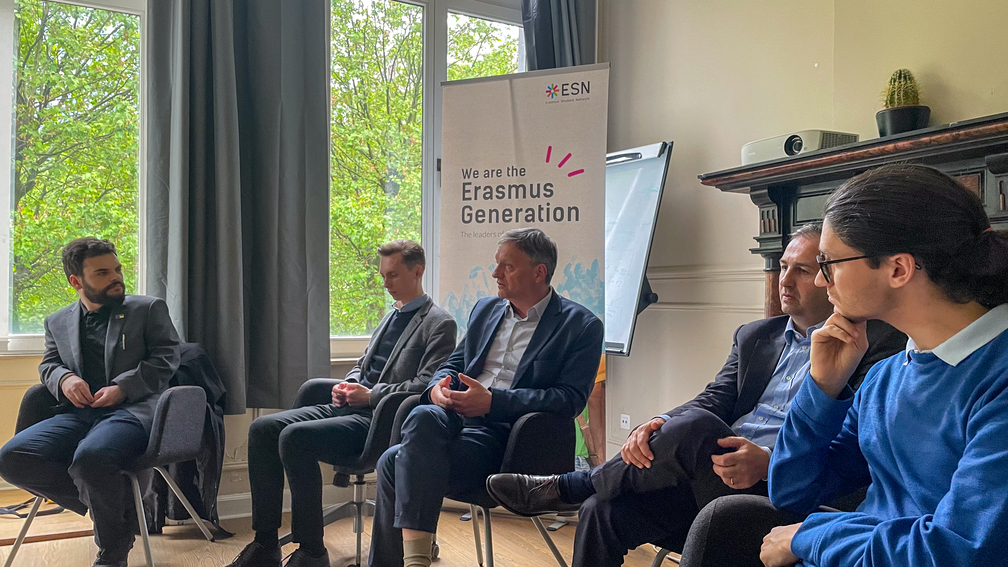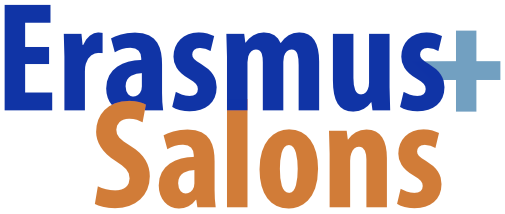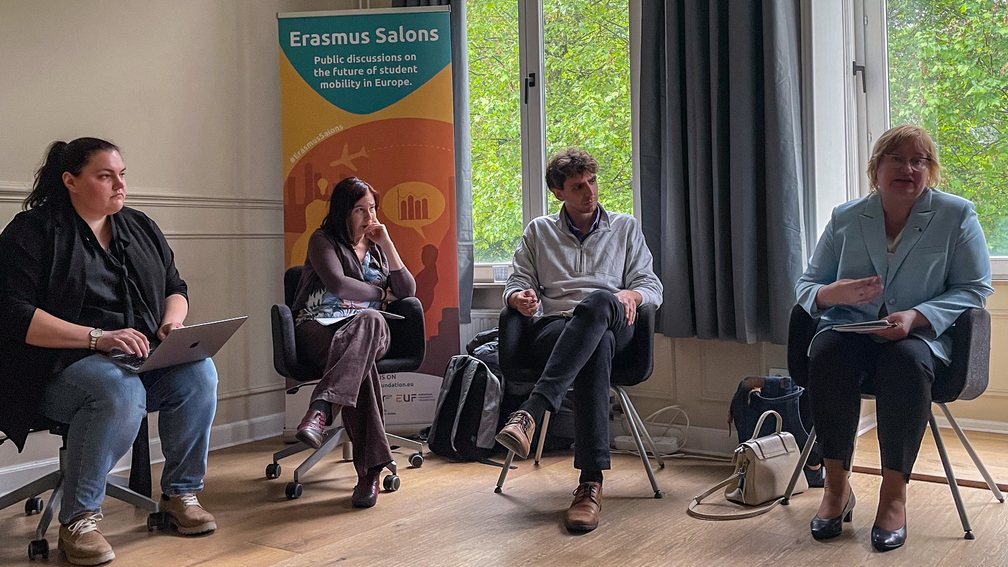On May 21st, different stakeholders attended the third Erasmus Salon of 2024 to examine how the recent (and not-so-recent) geopolitical developments have affected learning mobility across Europe. The discussion focused specifically on Ukraine and Switzerland and explored how the Erasmus+ programme is fostering more resilient European communities.
The Swiss Case: Navigating Exclusion and Reassociation
Looking back at 2014 when Switzerland was excluded from the Erasmus+ programme, Laurin Reding, Deputy Head of Office at Swisscore, stated that it came as a big shock to the Swiss higher education community. Despite this setback, Switzerland ensured continuity in both outgoing and incoming mobility by reallocating government resources. The proactive approach from the Swiss preserved strong ties with European higher education institutions. As Swiss-EU negotiations are underway, there is hope for Switzerland’s re-association with European programmes, such as Erasmus+ and HORIZON. Reding emphasised the interdependence of education and research, urging a unified approach to reintegration.
The Ukrainian Case: a Combination of Internal Resilience and External Support
With the start of the war in Ukraine, the European Union directed resources to support Ukrainian higher education institutions and its community, facilitating the continuation of studies for students in Europe and welcoming displaced academic and research staff. Supporting Ukraine appears also as one of the key priorities of the Erasmus+ programme. Svitlana Shytikova, Project Coordinator at the Ukrainian National Agency, pointed out that, despite a substantial decrease in student numbers, Ukrainian higher education institutions remain resilient – e.g. when the situation allows, practical classes are still taking place in person. Shytikova stressed that European support has been important for both those who fled and those who stayed. With the introduction of the blended programmes, students in Ukraine have more opportunities to continue their studies and utilise a wider array of resources available across Europe.
When inquired about potential full association with the Erasmus+ programme, Shytikova remarked that with opportunities comes high responsibility. The programme encompasses not only higher education, but also other education sectors, including sport and youth. And whilst higher education might be ready for accession, other sectors need more time to build capacity. This sentiment was echoed by participants regarding Western Balkan countries or Georgia, highlighting the need for a balanced approach that ensures capacity building alongside swift integration.

Looking forward
Veronica Arduino, Project and Policy Coordinator at Lifelong Learning Platform, highlighted that investing in education today means investing in the future generation. Mobility programmes like the Erasmus+ are instrumental in building more resilient European communities and upholding EU values. In the light of the European Parliament elections and shifting political landscape across Europe (and beyond), Erasmus stands as an important instrument for safeguarding the future.

